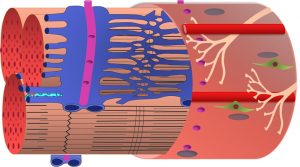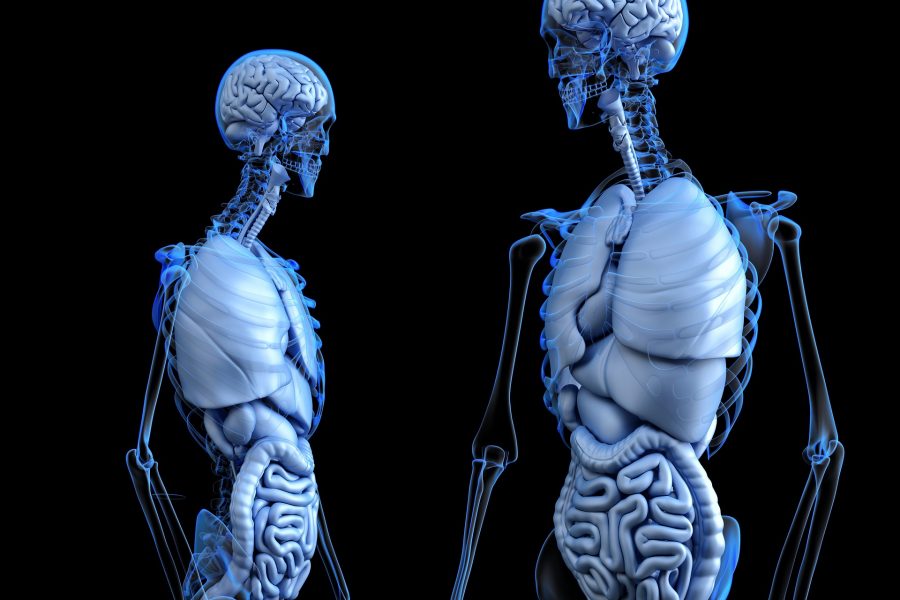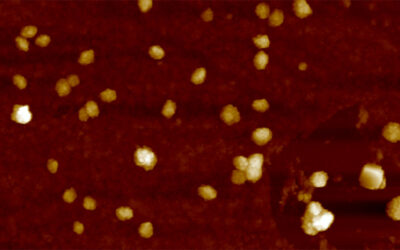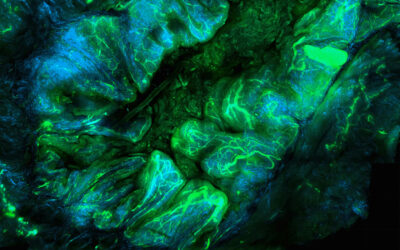Skeletal muscle is often viewed as a complex biomechanical device designed to accomplish the task of generating contraction, force, and movement. Decades of research in skeletal muscle physiology have provided multi-scale insights into its structural and functional complexity.
The “omics” revolution propelled a new era in muscle research, allowing scientists to delve deeper into understanding its complex function at a molecular level.
In a recent WIREs Systems Biology and Medicine review, the authors focus on providing a holistic picture of the various interacting components within skeletal muscle that are necessary for its health and function.
The authors emphasize the idea of viewing muscle as a biomechanical device requiring co-ordination between several factors or “functional components”, both intrinsic (e.g. genetic) and extrinsic (e.g. environmental stressors, circulatory factors).

Schematic representation of skeletal muscle fiber.
Drs. Mukund and Subramaniam, from the University of California San Diego, say that the goal is to define the muscle in the framework of these (functional) components, and within each component, understand the molecular networks critical for defining muscle health.
While reviews typically target specific components of muscle, such as the contractile machinery or the neuromuscular junction, this study attempts to produce a more cohesive picture, introducing the reader to the breadth of interactions underlying muscle function and dysfunction. This comprehensive review derives from the most up to date research on skeletal muscle to benefit biomedical researchers and students alike.
The authors in this primer also emphasize the pathophysiological changes arising in muscle, as a response to triggers such as inflammation, oxidative stress, and exercise, and specifically, the impact of fibrosis, hypertrophy and atrophy on the structural and functional integrity of the muscle.
The authors additionally highlight aberrant molecular mechanisms underlying muscle diseases such as the many muscular dystrophies, and myopathies, thus, bridging muscle research at genomic, molecular and mechanistic levels, in both health and disease.

















